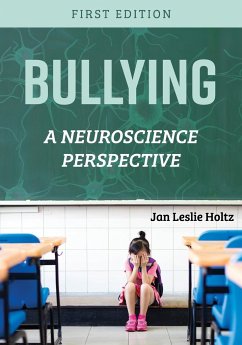Bullying: A Neuroscience Perspective blends research in neuropsychology, sexual harassment, and violence to examine the developmental, psychological, and social roots of bullying, and how understanding cognitive function is essential in the creation of successful programs to combat it. The book begins by discussing definitional issues, the bullying spectrum, and bullying's prevalence. This information is then linked to understanding of the brain and cognitive functioning. Students learn about the brain's responses under the stress of bullying situations, no matter the individual's role, and how this impacts the development of successful anti-bullying programs. Other topics include qualitative and quantitative research on specific programs, particularly data on ecological validity and effectiveness, and the role of school climate and social support in obtaining positive results from anti-bullying programs. Bullying: A Neuroscience Perspective addresses bullying as it impacts learners of all ages, from preschool to adulthood. It incorporates up-to-date research to not only explore problems but posit solutions. Written for education professionals seeking to develop anti-bullying programs, the book can also be used in upper-division courses in psychology, social work, and education. Jan Leslie Holtz earned her Ph.D. in clinical psychology at the University of South Dakota. Dr. Holtz is now a professor of psychology at the College of Saint Benedict and Saint John's University, where she teaches clinical and counseling psychology, abnormal psychology, neuropsychology, and senior psychology seminar on ethics. Her areas of research interest include clinical psychology, neuropsychology, and abuse.
Hinweis: Dieser Artikel kann nur an eine deutsche Lieferadresse ausgeliefert werden.
Hinweis: Dieser Artikel kann nur an eine deutsche Lieferadresse ausgeliefert werden.








